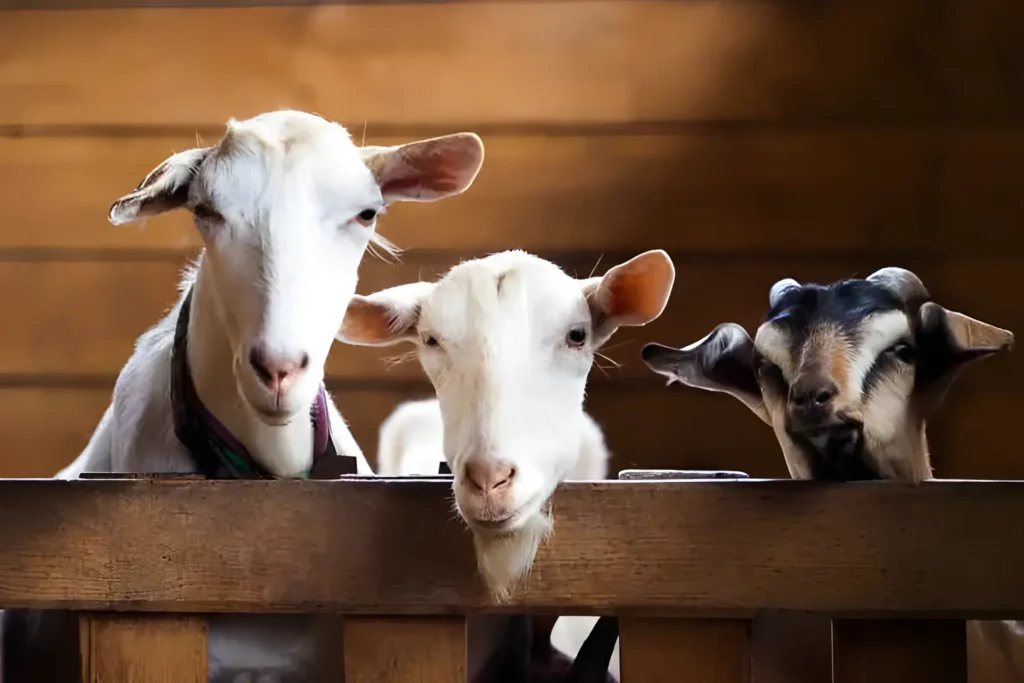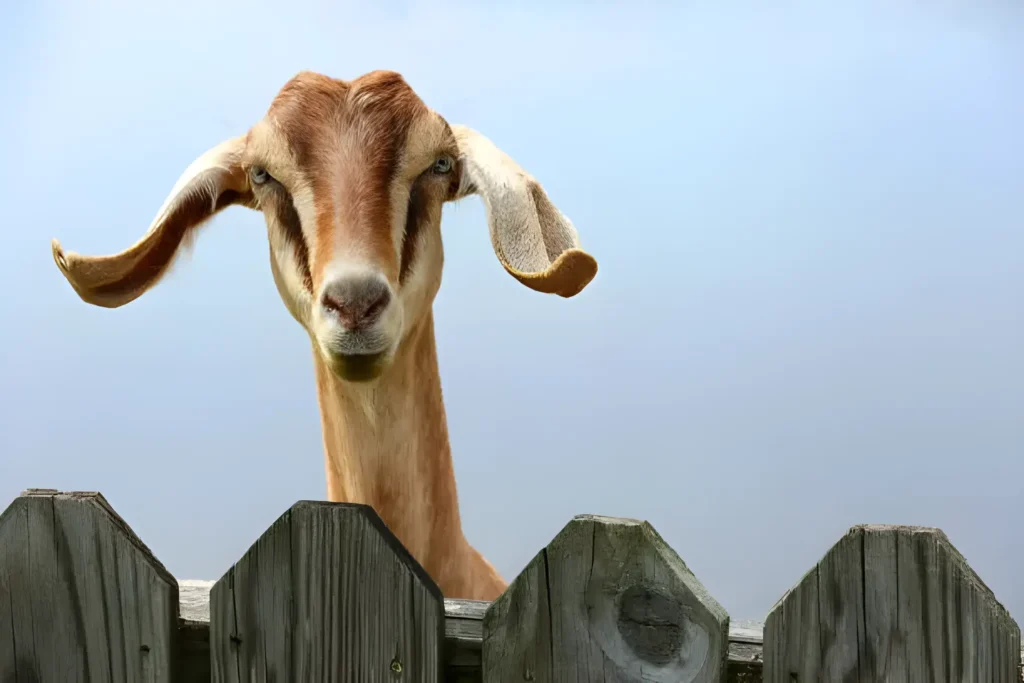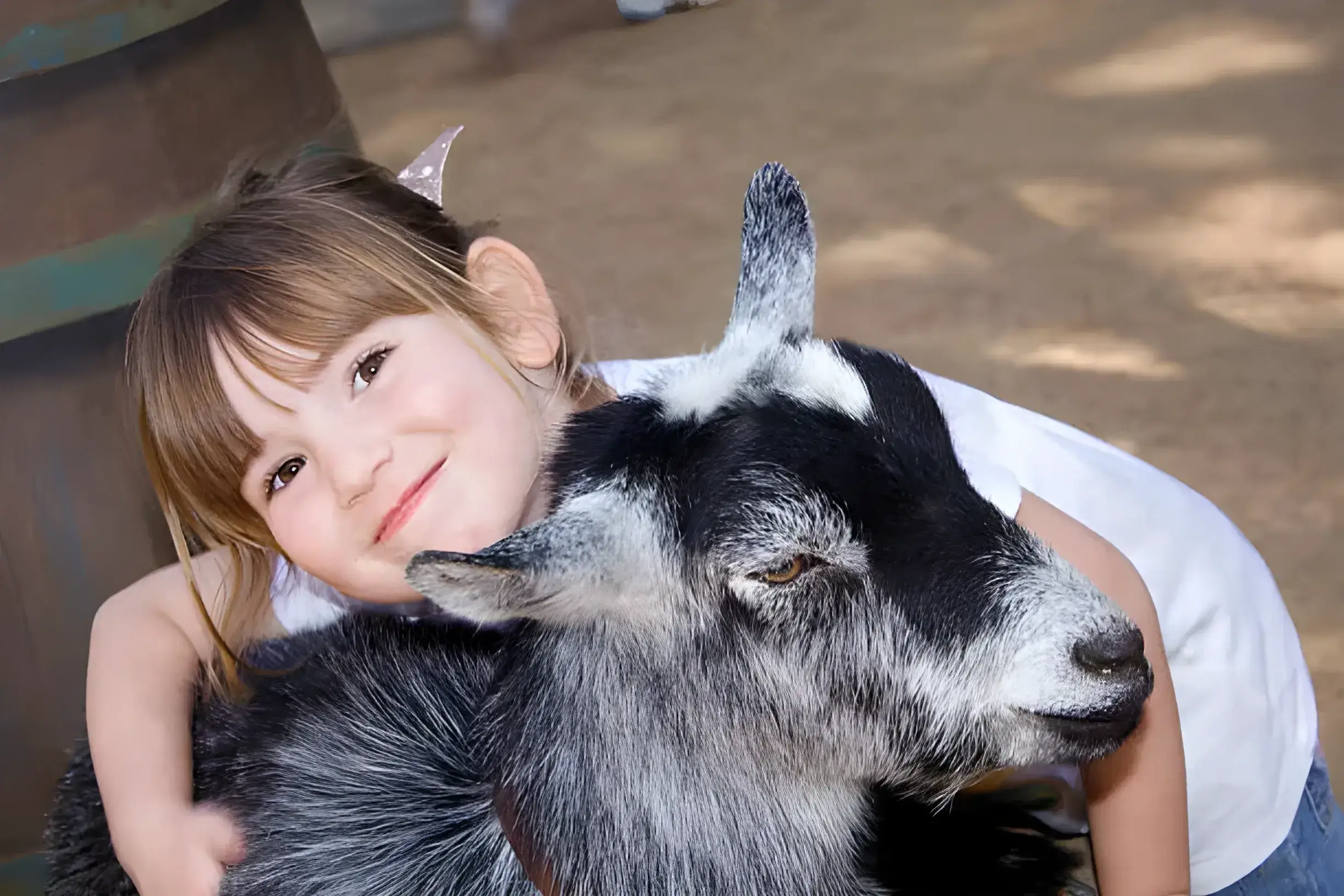The short answer is yes, goats can make wonderful pets – but they’re not right for everyone. Goats are intelligent, playful, and incredibly affectionate companions. However, they’re also herd animals that demand time, financial investment, and an understanding of their unique needs. Let’s dive deeper!
The Joys of Goat Companionship
Entertainment Central: Goats are renowned for their playful antics. They love to climb, leap, and explore, providing endless entertainment and laughs.
Affection Unlimited: Goats develop strong bonds with their humans and love a good cuddle or head scratch.
Potential Farm Benefits: Depending on your space, some goat breeds can provide fresh milk, assist with brush clearing, and offer a source of nutrient-rich manure.
The Essential Considerations
Herd Mentality: Goats are social creatures and thrive in pairs or small groups. Keeping a single goat is a recipe for a lonely, unhappy pet.
Secure Fencing is a Must: Goats are escape artists! They need sturdy, well-maintained fencing to prevent wandering and potentially dangerous encounters.
Cost and Commitment: Goats require ongoing expenses like food, hay, shelter, and veterinary care. They can live for 10-15 years, so be prepared for a long-term commitment.
Goat-Proofing Adventures: Goats have a natural curiosity and a penchant for chewing. Your garden, landscaping, and even your outbuildings will need protection.
Breed Matters: Smaller breeds like Nigerian Dwarfs and Pygmies are generally better suited for pet life. Larger breeds are often stronger and might be less suited to children or smaller homes.
Before You Bring Goats Home: A Preparation Checklist

Fencing: Increase height (4-5 feet minimum), repair gaps, consider electric strands, and ensure secure posts and gate latches.
Shelter: Adequate shelter built and accessible.
Resources: Feed and hay sourced, a veterinarian specializing in goats located.
Regulations: Local ordinances researched regarding livestock, noise, etc.
Garden Protection: Fence individual beds, use raised beds, or choose less appealing plants. Avoid toxic species.
Outbuildings: Seal any gaps in sheds or barns, use secure latches, and remove potential hazards from goat access.
Goat Enrichment: Beyond the Basics
A stimulating environment is key to a happy goat herd. Provide:
- Climbing Structures: Platforms, ramps, or sturdy outdoor furniture.
- Mental Stimulation: Toys like balls and puzzle feeders.
- Browsing Options: Safe tree branches, shrubs, or hanging edible treats.
- Play and Interaction: Supervised playtime with owners and time to roam.
Myths and Misconceptions About Goats

- “Goats will eat anything.” Goats can be picky eaters and need a balanced diet.
- “Goats are stubborn.” Goats are intelligent and trainable with patience.
- “Goats always smell bad.” Intact males (bucks) smell during the breeding season, but does and wethers (castrated males) generally don’t have a strong odor.
Is Your Home Goat-Ready?
Before you rush out to get a goat, ask yourself these honest questions:
Do you have sufficient space: Goats need room to graze, play, and have a secure shelter for inclement weather.
Can you afford their upkeep: Food, supplies, and veterinary care add up over time.
Are you tolerant of some noise: Goats aren’t silent creatures and will vocalize at times.
Can you commit to daily care: Goats need fresh food, water, and attention all year round.
The Wonders of Goats as Pets: When It’s the Right Fit
If you’re willing to embrace the challenges and invest in their well-being, goats can bring immense joy to your life. Their affectionate nature, playful personalities, and potential for practical benefits can create a unique and rewarding bond.
Conclusion
Goat ownership demands dedication and understanding of their specific needs. If you can provide a safe, stimulating environment, and meet their physical and emotional requirements, goats can bring immense joy and companionship.
The photo featured below the post headline is Credit: 3bugsmom/istockphoto
I hope you find this post helpful and informative. If Yes’ feel free to share it with your friends!
Frequently Asked Question
What is the minimum space requirement for pet goats?
A pair of dwarf goats generally needs a minimum of a quarter-acre of fenced pasture with access to shelter.
Do goats require special dietary considerations?
Yes, goats need quality hay, access to browsing, and a balanced mineral supplement to prevent deficiencies.
Are goats prone to any health issues?
Yes, goats can face several health challenges, including:
Parasites: Both internal (worms) and external (lice, mites).
Hoof problems: Overgrowth and hoof rot, especially in damp conditions.
Bloat: A potentially life-threatening digestive issue.
Can goats be house-trained?
With dedication, some owners manage to housebreak their goats, but accidents are always possible. It’s generally not recommended to keep goats as indoor pets.
Where can I find goats to adopt?
Check with local breeders, shelters, and online classifieds specializing in goat rehoming.
Can you own a goat in a residential neighborhood?
This depends entirely on your local zoning laws and ordinances. Research thoroughly before bringing goats home.
Do goats make good pets for beginners?
Goats can be wonderful pets but require some knowledge and preparation. If you’re a beginner, start with extensive research, connect with experienced goat owners, and perhaps consider starting with an older, well-trained goat.
Do goats like to be petted?
Most goats enjoy affection and will happily accept cuddles, scratches, and petting from their trusted humans.
Do goats get along with dogs?
Goats and dogs can coexist peacefully with proper introductions and supervision, especially if raised together.
How do I introduce a new goat to my existing herd?
Introducing new goats requires a quarantine period and gradual introductions to reduce stress and potential conflict.
What are the signs of a healthy goat?
A healthy goat has a glossy coat, bright eyes, clear nasal discharge, normal appetite, and is active and alert.
How often should I trim my goat’s hooves?
Regular hoof trimming is essential for goat health. Frequency depends on terrain and individual growth, but aiming for every 6-8 weeks is a good starting point.

